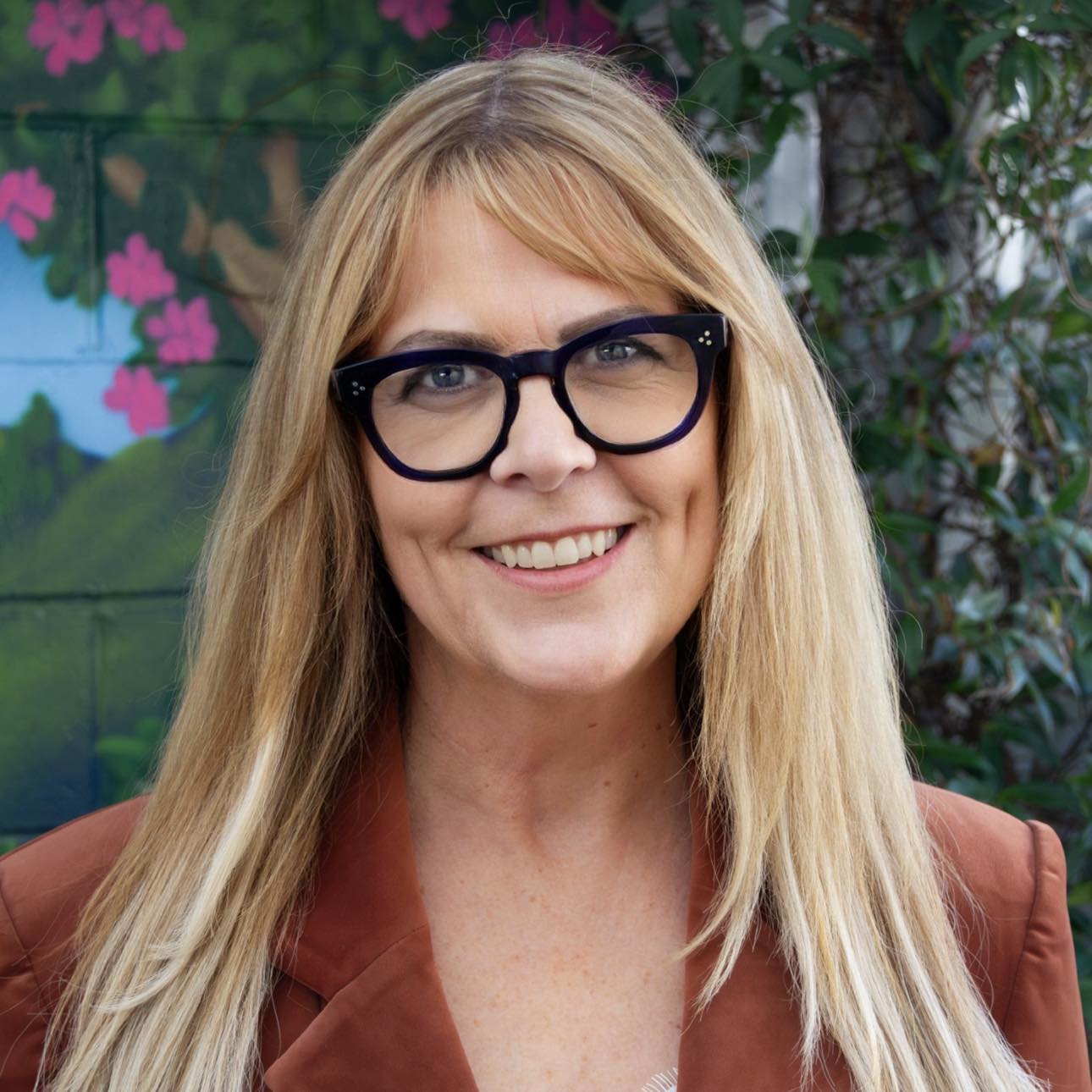
Meeting Topic
INTRODUCTION FOR NEXT MEETING TOPIC:
As you construct your 60-second introduction for this meeting, read the article below contributed by Kelly McNamara and consider your personal financial health as a female in our society. Have you accessed the support and advice you need to help you understand what your financial future might look like and taken the necessary steps to ensure it delivers not only what you’ll need but what you WANT as you get older?
Securing Your Financial Future By Kelly McNamara
Did you know that on average, women spend less of their lives in paid employment? We might be working part-time or out of the workforce for extended periods. The reasons for this vary between individuals but some common themes are raising children, looking after ageing family members, community involvement and the physical and emotional labour of running a household.
In addition to time out of the workforce, on average women are paid 12% less (!) than men. There are certainly strides being made in this space with several pay equity negotiations and settlements underway, but we will feel the effects of this inequity for many years to come at both an individual and societal level.
Why does it matter?
Generally, women will live longer and with less money than men. The average length of widowhood is 14 years but between the ages of 55-64 women’s KiwiSaver balances are approximately 25% lower. So, what do we do? Do we just live off the smell of an oily rag and rely on NZ Superannuation and the generosity of our children to see us through?
There is a stereotype that men are better with money and investing than women. If anything, men are generally overconfident and may overestimate their skills and knowledge when it comes to investing. While women tend to invest much more conservatively and have less confidence in their decision-making abilities.
The compounding power of saving and investing is often referred to as the 8th wonder of the world, so where do we start to ensure we aren’t missing out?
Prioritise financial planning. You could do this independently or utilise the services of a good financial adviser.
A 2020 study found that New Zealanders who get financial advice have, on average KiwiSaver balances over 50% bigger than those who don’t. Also, people who seek investment advice receive on average 4% per annum better return and have more in savings and investments than those who don’t. In the same study, 60% of respondents not currently receiving advice, felt they did not have enough assets or wealth to seek professional advice or that they could not afford it.
How can a financial adviser help you:
- Goal setting – The Cheshire Cat in Lewis Carrol’s Alice in Wonderland says something along the lines of ‘If you don’t know where you’re going, then any path will take you there’. This is very true of our lives and particularly financially. Everyone will have different goals, whether it be travel, early retirement, maintaining a lifestyle once retired or helping children & community. Identifying your own personal goals is key to be able to move towards achieving them.
- Create a plan – Often a good starting point can be to look at where you will end up, based on current behaviors with saving and investing. It may be that you are already doing enough to meet all your goals. I really enjoy this part of my job as it is such a comfort for clients to know they will be achieving the life they want. Alternatively, if you are not going to be able to meet your goals based on current behaviors, what can we change or tweak now to ensure you get there? Do you need to save more or spend less? Do your goals need to be adjusted? Can you take on more risk to achieve higher returns?
- Being rational and managing risk – It can be hard to take emotion out of financial decisions which is part of why working with a financial adviser is beneficial. You should only take on as much risk as you need to, to achieve your goals. Also, the amount of risk you are willing to take on with investments will change as you move through different periods of your life. A financial adviser can help you have confidence in your decisions. Knowing there is a robust and rational structure in place to help you get where you want to go means you can prioritise and focus on other aspects of your life.
- Regularly review – Creating a financial plan is like setting an ideal destination. There will undoubtedly be things that happen in life that blow you off course. Reviewing regularly means that changes can be made to your plan to take into consideration new information.
Be engaged in the process – Once you have identified your goals and have some structure around achieving them, the time commitment on an ongoing basis is very manageable. 2-3 hours per year, reviewing where you are in relation to where you would like to get to should be more than enough. If you are feeling really inspired and engaged in your financial journey, then there are plenty of books and podcasts available to increase your knowledge.
And now Relax – now that you have a clear idea of your destination and a plan in place to get you there, you can relax and enjoy the journey!
Recommended Reading – On Your Own Two Feet: The Essential Guide to Financial Independence for All Women
Recommended Listening – ‘She’s on the Money’ podcast – is available on streaming services
You can learn more about Kelly here: https://www.sbsbank.co.nz/invest/fanz-private-wealth/about-us/kelly-mcnamara
Next Meeting Topic
INTRO to this meeting topic:
We’ve all most likely heard the term ‘income protection’ at some point in our lives. But how many of us understand what an income protection policy actually covers? Continuing on with the Financial Pillar, Caro Gatley explains in detail WHY we may want to consider protecting our income, complete with examples! So pour a cuppa, put on your thinking cap and take your time with the following article – and then seek out advice if you need it. Consider sharing your insights with your group in your 60-second introduction: What did you learn? What action, if any, do you need to take? Have you had personal experience with an income protection claim?
………..
WHY SHOULD YOU PROTECT YOUR INCOME? By Caro Gatley
There is a myth that ACC will cover you if you get sick or injured. This is not the case and it is simply there as an interim benefit immediately following an accident or injury. Your income protection however, covers you for an illness and or/ accident and will continue to pay you until you are medically well enough to return to work. With the correct advice (you can’t get this online), you can claim on your ACC benefit plus claim your personal income protection on top of any payments. “Modern” income protection products are designed to have “NO OFFSETS”. This means you can receive sick leave, full pay, rent, ACC, investment income etc without these income benefits being deducted. If you are self-employed, you should be on ACC Cover Plus Xtra, which has been especially designed for this group of people. Your Adviser will show you how to reduce your ACC levies with the appropriate level of income protection in place, so you are not paying twice. ACC levies are compulsory so if you can reduce them that is a win, right?
SELF EMPLOYED:
Here is an example to clarify how ACC Levies and Income Protection work together:
Based on $100,000 of taxable income: The maximum you can insure is 75% of this amount ($75,000) or the tax paid equivalent 62.5% ($62,500). We can insure 50% of the $62,500 under what is called an Agreed Value or Tax Paid benefit. This equates to $2,604.16 per month with NO OFFSETS, as mentioned above. The residual 50% of $2,604.16 per month is insured under the “standard” income protection. If you were to reduce your ACC levies under ACC Cover Plus xtra to the legal minimum (of around $35,000) this is how much you would receive per month if you had an accident:
ACC Cover Plus xtra $2,916.66 per month (taxable)
+
Agreed value income $2,604.16 per month (non-taxable)
If you were sick or ACC no longer supported your claim, both lots of your income protection would pay you, for example:
Agreed Value income $2,604.16 per month (non-taxable)
+
Residual income $2,604.16pm (non-taxable)
EMPLOYED PEEPS
If you or your spouse or partner take the same $100,000 as a salary earner, and that person were to have an accident, ACC would pay them 80% of the salary ($80,000). Based on insuring that $100,000, the same calculations are used as for self-employed, but look how much more money you will receive if your policies are structured correctly:
ACC employee $6,666 per month (taxable)
+
Agreed value income $2,604.16 per month (non-taxable and claimable on top of the ACC),
so if you added the tax (say at 33%) on to the Agreed Value income it would equate to $2,682 per month making a
TOTAL OF $9,270 PER MONTH!
That’s more than your normal salary!
BUT WAIT – THERE’S MORE…
If your kindly employer paid you your full $100,000 minus tax you are still able to claim the Agreed Value income of $2,604 per month on top of this, due to the NO OFFSETS product policy wordings. This is gold.
INCOME PROTECTION POLICIES 5+ YEARS OLD generally will NOT have this benefit in their policy wordings.
AND NOW FOR THE FREE STEAK KNIVES!
Just like any other product/service/commodity, insurance has become very competitive, and understanding policy wordings is what we do as Advisers, a bit like what a lawyer does with legal documents!
Should you suffer a fracture, your income protection will pay you out your monthly benefit whether you return to work or not.
Example 1: you break your wrist! For some of us we would return to our desk bound job pretty much immediately, well, based on the above income protection structure you would be able to claim both income protection amounts totalling $5,208 straight away.
Example 2: you fracture your shoulder! This constitutes 2 x the benefit ie $5,208 x 2 = $10,416, whether you can work or not
Example 3: you fracture your back! This constitutes 3 x the benefit ie $15,624
All of these payments are on top of any other benefits you may receive including Salary, ACC etc.
CANCER INSURANCE AND INCOME PROTECTION
Cancer cover sits under the Trauma Insurance product that covers 48 different Traumas you may experience. While Cancer is just one of those, it is sadly the most claimed illness.
Should you suffer Cancer, a lump sum payment is paid immediately upon diagnosis, let’s say it is $100,000. The “modern” policy will also immediately pay you an additional 6 x your income protection. Based on the example above, that would be an additional $5,208 x 6 = $31,248, whether you return to work or not!! Pretty amazing stuff to be sure! For many clients the experience is like “raining money”, which simply means one less major worry they don’t need when going through such a trying time.
If you were to become totally and permanently disabled from your normal occupation, for example a dentist sustains permanent damage to their hand and can no longer perform their job, they would get the lump sum paid out (let’s use the same $100,000 salary again), they would receive another 24 x their income protection benefit up front (for example, 24 x $5,205 = $124,920).
OTHER PRODUCTS AVAILABLE
There are a huge suite of products available to make up your personalised insurance portfolio, whether you are self-employed in a limited liability company, sole trader or employed. Here are some you have undoubtedly heard of and maybe a couple you haven’t: Life insurance; Mortgage Cover; Household expenses cover; Medical insurance; Private hospital care; Key person cover; Shareholder protection; Debt protection. Quality advice with claims support are the key things you need when looking for insurances, so you can concentrate on doing what you do well and know when things go wrong you (and your loved ones) are going to be cared for.
You can read more about Caro’s story and how she helps her clients here: https://www.caroandco.co.nz
 Print This Post
Print This Post




